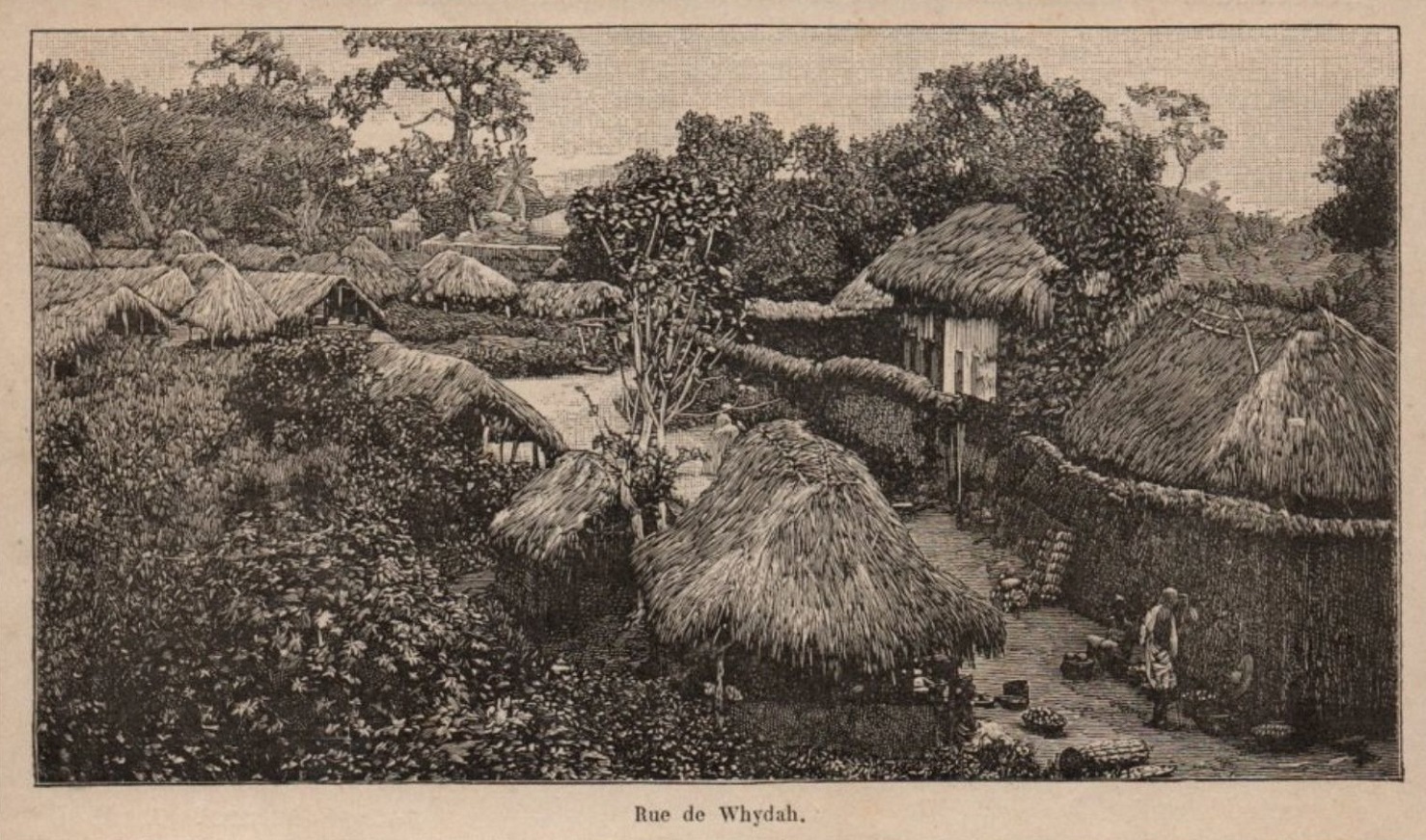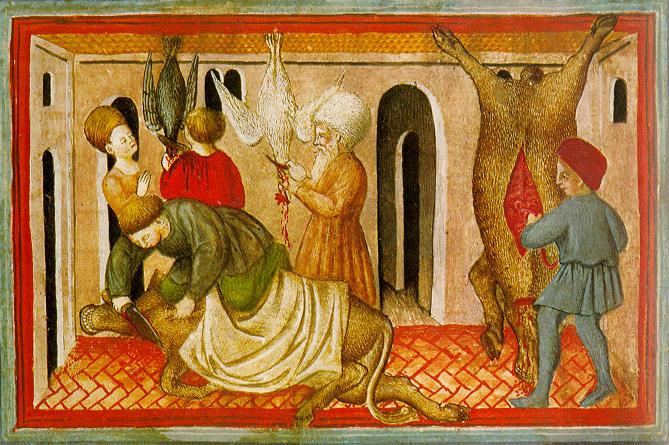|
Fête Du Vodoun
Vodoun Day or Fête du Vodoun (literally Vodoun Festival, also known as Traditional Religions Day) is a public holiday in Benin that celebrates the nation's history surrounding the West African religion of Vodoun. The celebration is held annually on January 10 throughout the country but most notably in the city of Ouidah. Beginning with the slaughter of a goat in honor of the spirits, the festival is filled with singing, dancing and the imbibing of liquor, especially gin. Vodoun was officially declared a religion in Benin in 1996 and the festival has attracted thousands of devotees and tourists to Ouidah to participate in the festivities ever since. Pictures File:Zangbeto Benin festival Jan 2018.webm, Zangbeto performing in Fête du Vodoun in Grand-Popo Grand-Popo is a town, Arrondissements of Benin, arrondissement, and Communes of Benin, commune in the Mono Department of south-western Benin. The commune covers an area of 289 square kilometres and as at the 2013 Census had ... [...More Info...] [...Related Items...] OR: [Wikipedia] [Google] [Baidu] |
Public Holiday
A public holiday, national holiday, federal holiday, statutory holiday, bank holiday or legal holiday is a holiday generally established by law and is usually a non-working day during the year. Types Civic holiday A ''civic holiday'', also known as a ''civil holiday'' or ''work holiday'', is a day that is legally recognized and celebrated as a holiday in a particular sovereign state or jurisdictional subdivision of such, e.g., a state or a province. It is usually a day that the legislature, parliament, congress or Monarch, sovereign has declared by statute, edict or decree as a non-working day when the official arms of government such as the court, court system are closed. In federation, federal states there may also be different holidays for the constituent states or provinces, as in the United States, where holidays that were established by the federal government are called ''federal holidays''. Such days may or may not be counted in calculating the statute of limitation ... [...More Info...] [...Related Items...] OR: [Wikipedia] [Google] [Baidu] |
Benin
Benin, officially the Republic of Benin, is a country in West Africa. It was formerly known as Dahomey. It is bordered by Togo to the west, Nigeria to the east, Burkina Faso to the north-west, and Niger to the north-east. The majority of its population lives on the southern coastline of the Bight of Benin, part of the Gulf of Guinea in the northernmost tropical portion of the Atlantic Ocean. The capital is Porto-Novo, and the seat of government is in Cotonou, the most populous city and economic capital. Benin covers an area of , and its population in was estimated to be approximately million. It is a tropical country with an economy heavily dependent on agriculture and is an exporter of palm oil and cotton. From the 17th to the 19th century, political entities in the area included the Kingdom of Dahomey, the city-state of Porto-Novo#History, Porto Novo, and other states to the north. This region was referred to as the Slave Coast of West Africa from the early 17th century due ... [...More Info...] [...Related Items...] OR: [Wikipedia] [Google] [Baidu] |
Ouidah
Ouidah (English: ; French: ) or Whydah (; ''Ouidah'', ''Juida'', and ''Juda'' by the French; ''Ajudá'' by the Portuguese; and ''Fida'' by the Dutch), and known locally as Glexwe, formerly the chief port of the Kingdom of Whydah, is a city on the coast of the Republic of Benin. The commune covers an area of and as of 2002 had a population of 76,555 people. History In local tradition Kpassa is supposed to have founded the town. This probably happened towards the end of the sixteenth century. The town was originally known as ''Glēxwé'', literally 'Farmhouse', and was part of the Kingdom of Whydah. Ouidah saw its role in international trade rise when the Royal African Company (RAC) constructed a fort there in 1650. Whydah troops pushed their way into the African interior, capturing millions of people through wars, and selling them to European and Arab slave traders. By 1716, the Kingdom of Whydah had become the second largest slave port in the triangular trade, as noted by ... [...More Info...] [...Related Items...] OR: [Wikipedia] [Google] [Baidu] |
Ritual Slaughter
Ritual slaughter is the practice of slaughtering livestock for meat in the context of a ritual. Ritual slaughter involves a prescribed practice of slaughtering an animal for food production purposes. Ritual slaughter as a mandatory practice of slaughter for food production is practiced by some Muslim and Jewish communities. Both communities have similar religious philosophies in this regard. American scientist Temple Grandin has researched ritual slaughter practices and says that abattoirs which use recommended practices cause livestock little pain; she calls the UK debate over halal slaughterhouses misguided, and suggests that inhumane treatment of animals happens in poorly run slaughterhouses regardless of their halal status. The Farm Animal Welfare Committee (FAWC), which advises British government on how to avoid cruelty to livestock, on the other hand, says the way Jewish kosher and Muslim halal meat is produced causes severe suffering to animals. Ritual slaughter is in ma ... [...More Info...] [...Related Items...] OR: [Wikipedia] [Google] [Baidu] |
Zangbeto
Zangbeto are the traditional Vodún guardians of the night among the Ogu (or Egun) people of Benin, Togo, and Nigeria. A traditional police and security institution, the Zangbeto cult is charged with the maintenance of law and order, and ensures safety and security within Ogu communities. They are highly revered and act as an unofficial police force patrolling the streets, especially in the night, watching over people and their properties, and tracking down criminals and presenting them to the community to punish. Originally created to scare the enemy away, Zangbeto will wander the streets to detect thieves and witches, and to protect law and order. Description Relating its fundamental cultural role in local vigilantism and community policing in Ogu societies, Zangbeto is a term in Gun language which means "men of the night" or "night-watchmen". According to further linguistic etymology the term Zangbeto is derived from "zan", meaning night, and "gbeto", meaning person or peopl ... [...More Info...] [...Related Items...] OR: [Wikipedia] [Google] [Baidu] |
Grand-Popo
Grand-Popo is a town, Arrondissements of Benin, arrondissement, and Communes of Benin, commune in the Mono Department of south-western Benin. The commune covers an area of 289 square kilometres and as at the 2013 Census had a population of 57,636 people. The term "Grand-Popo" is a European exonym for the ancient town and kingdom of "Hulagan" (Great Hula). The Phla language, Hula/Xwla/Phla people that once dominated the Togo-Benin coast traditionally regarded Great Hula as their ancestral town of common origin. It is unclear why Europeans began calling it Popo rather than Hula. It may come from a generic Yoruba people, Yoruba term "popo" for peoples to their "west", which was subsequently borrowed by the Portuguese to refer to the Hula/Phla specifically. An alternative theory connects the "Popo" term to an ancient ruler called Kpokpo of Tado (an Aja people, Aja town in the interior), which the Europeans may have confused with Hulagan. The town grew around the History of sla ... [...More Info...] [...Related Items...] OR: [Wikipedia] [Google] [Baidu] |
West African Vodun
West is one of the four cardinal directions or points of the compass. It is the opposite direction from east and is the direction in which the Sun sets on the Earth. Etymology The word "west" is a Germanic word passed into some Romance languages (''ouest'' in French, ''oest'' in Catalan, ''ovest'' in Italian, ''vest'' in Romanian, ''oeste'' in Spanish and Portuguese). As in other languages, the word formation stems from the fact that west is the direction of the setting sun in the evening: 'west' derives from the Indo-European root ''*wes'' reduced from ''*wes-pero'' 'evening, night', cognate with Ancient Greek ἕσπερος hesperos 'evening; evening star; western' and Latin vesper 'evening; west'. Examples of the same formation in other languages include Latin occidens 'west' from occidō 'to go down, to set' and Hebrew מַעֲרָב (maarav) 'west' from עֶרֶב (erev) 'evening'. West is sometimes abbreviated as W. Navigation To go west using a compass for navigati ... [...More Info...] [...Related Items...] OR: [Wikipedia] [Google] [Baidu] |
Culture Of Benin
Benin, officially the Republic of Benin, is a country in West Africa. It was formerly known as Dahomey. It is bordered by Togo to the west, Nigeria to the east, Burkina Faso to the north-west, and Niger to the north-east. The majority of its population lives on the southern coastline of the Bight of Benin, part of the Gulf of Guinea in the northernmost tropical portion of the Atlantic Ocean. The capital is Porto-Novo, and the seat of government is in Cotonou, the most populous city and economic capital. Benin covers an area of , and its population in was estimated to be approximately million. It is a tropical country with an economy heavily dependent on agriculture and is an exporter of palm oil and cotton. From the 17th to the 19th century, political entities in the area included the Kingdom of Dahomey, the city-state of Porto Novo, and other states to the north. This region was referred to as the Slave Coast of West Africa from the early 17th century due to the high number o ... [...More Info...] [...Related Items...] OR: [Wikipedia] [Google] [Baidu] |
January Observances
January is the first month of the year in the Julian calendar, Julian and Gregorian calendars. Its length is 31 days. The first day of the month is known as New Year's Day. It is, on average, the coldest month of the year within most of the Northern Hemisphere (where it is the second month of winter) and the warmest month of the year within most of the Southern Hemisphere (where it is the second month of summer). In the Southern hemisphere, January is the seasonal equivalent of July in the Northern hemisphere and vice versa. Ancient Roman observances during this month include Cervula and Juvenalia, celebrated January 1, as well as one of three Agonalia, celebrated January 9, and Carmentalia, celebrated January 11. These dates do not correspond to the modern Gregorian calendar. History January (in Latin, ''Ianuarius'') is named after Janus, the god of beginnings and transitions in Roman mythology. Traditionally, the original Roman calendar consisted of 10 months totaling ... [...More Info...] [...Related Items...] OR: [Wikipedia] [Google] [Baidu] |




